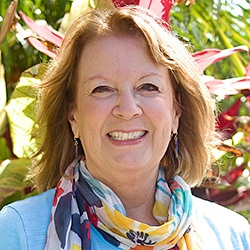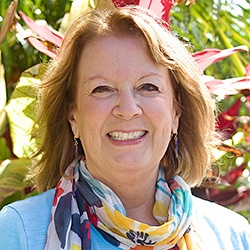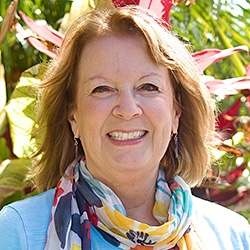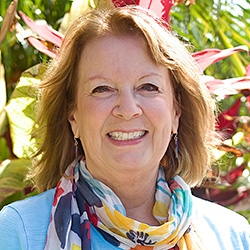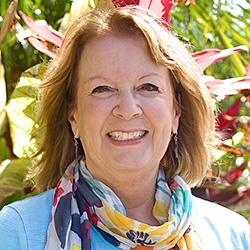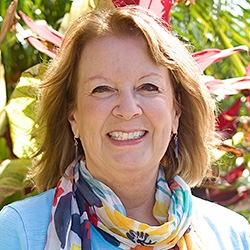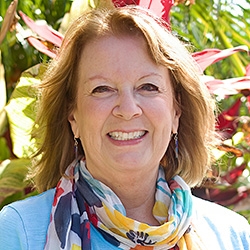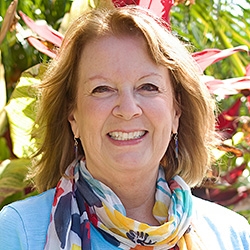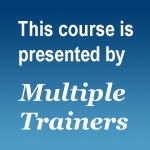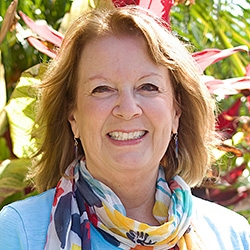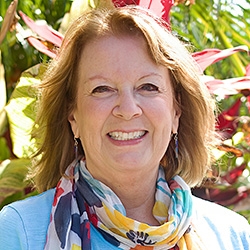

Search Results: communication
-
Trainer Tip: There's one sure way to find hidden assumptions, stop and check it out!
-
Trainer Tip: Silent empathy can be a powerful way of contributing to someone's life, giving them the gift of our presence.
-
Trainer Tip: Knowing the difference between what we need and what we want someone else to do about that need can have a profound impact on our relationships and our happiness.
-
Trainer Tip: Let's start an abundance movement! We get great joy from contributing to others lives and allowing them to contribute to ours, let's not let fear get in the way.
-
Trainer Tip: We can improve our relationships by focusing our attention first on connection instead of other stragegies.
-
Trainer Tip: Taking time to mourn our regrets and unmet needs can lead to a deeper self-connection and feelings of peace.
-
Trainer Tip: Q: How do we get the love we want? A: Ask for it.
-
Trainer Tip: Q: How do we get the love we want? A: Ask for it.
-
Miki explains how teachers and administrators can become more effective in relating to themselves, other faculty and staff, and they can contribute more to students' ability to feel connected and energized. Nonviolent Communication provides specific tools to empower ourselves and others to live more in line with our values and deeper needs.
-
Join Sylvia and Jean in this fascinating exploration of NVC and the Enneagram, a system of nine basic personality types.
-
Conflict is a normal and natural part of life. To varying degrees, it happens whenever two or more people consistently spend time together. Resolving conflict effectively and peacefully, in a way in which all parties feel respected and valued, does not feel natural for those of us who grew up with punitive, adversarial, or avoidant approaches to conflict. Eric offers some tips for approaching conflict.
-
What are the most powerful things I can do to build an inspired relationship? I answered the question with romantic relationships in mind; however, I believe the answer below applies to all important relationships.
-
Miki explains the distinction between the language and the underlying consciousness of NVC, and the pitfalls of failing to do so.
-
One of the premises in NVC is that behind all behavior and expressions are Universal Human Needs as the deeper motivators. And one of the key distinctions in NVC is that between Needs and Strategies. Try Alan Rafael Seid's exercise called "Peeling the Layers of the Onion, " a process for uncovering these needs — the deeper motivations — that underlie words and behaviors we may find disturbing or puzzling.
-
See the key principles of NVC demonstrated visually, with needs at the center.
-
Join Eric Bowers in transforming past relationship pain, coming alive in community and creating thriving relationships. This 12 session Telecourse recording brings together Eric's passions for Nonviolent Communication, Attachment Theory and Interpersonal Neurobiology.
-
Trainer Tip: It is true that we cannot fully understand other people until we understand ourselves. Gain understanding and healing through self-empathy within the Compassionate Communication process.
-
Trainer Tip: In Nonviolent Communication, we consider love to be a need. Remember that needs are universal; everyone has the same ones. We all need love, but the ways in which we express it can be very different.
-
The focus of this 6-session class is on shifting the intention of your teaching from how to why while embodying the principles and practice of NVC every step of the way - from planning to delivery. The methodology Miki offers is to start with understanding what the people in your audience face in their environment, continue with what they might want to learn and how NVC principles can provide them with what they want, and end with how you can frame the principles in a language and context that speak to your audience’s familiar experience.
-
Eric offers us a list of some of his favorite books, articles, and videos related to building successful relationships.

Quick Links
Subscription Preferences
Stay In Touch!
Looking for ways to keep up with NVC Academy news, get special offers, free resources, or words of inspiration? Here are five ways to stay engaged:

